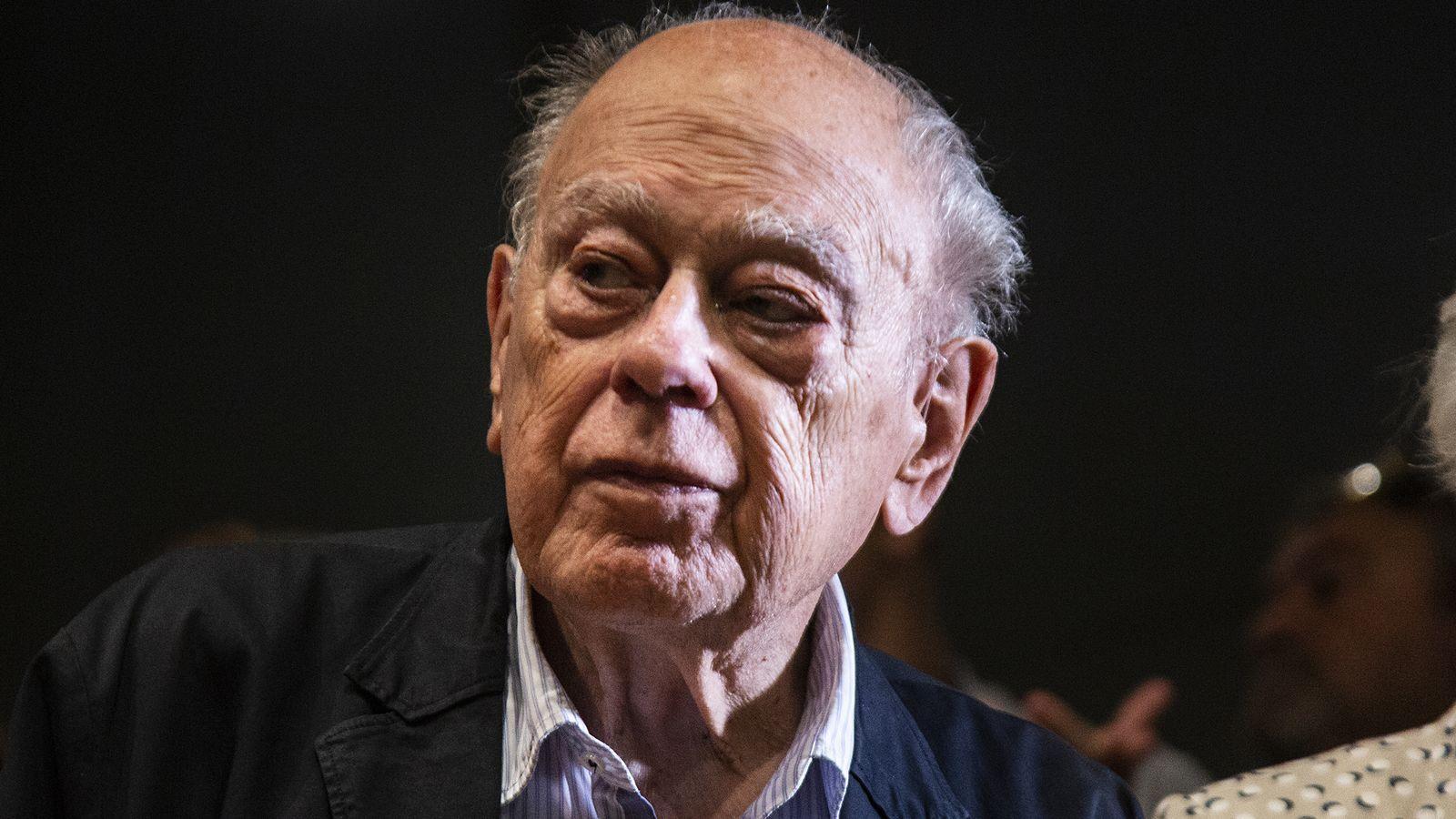

A few days before the false news of his hospitalization, President Pujol summoned me to his office at home, on Ronda General Mitre. At 95, he keeps up with the times. He was eager to chat. We spent almost two hours, alone, making coffee.
"How do you see the country, Aragay?" "How's it going, the NOW?" But I want him to be the one to tell me his. We move forward haphazardly, sometimes in a loop. He was intrigued by an article I wrote a few months ago about President Isla and the Catalan language. He has it in front of him, cut out and underlined. He's worried about the future of Catalan.
We're soon going to stop at the phenomenon of immigration, and here I take out the gift I brought you, a collection of unpublished letters between Francesc Cambó and Josep Antoni Vandellós, father of Catalan demography and author of the classic book Catalonia, a decadent people (1935). The letters have recently been deposited in the Library of Catalonia by the Guardans Cambó family, and my friend and historian Borja de Riquer is the one who alerted me to their existence because my wife is Vandellós's niece.
"Listen, I read this book when I was 17, and it left a deep impression on me, Vandellós," Pujol immediately says. There is one particularly relevant letter. Dated December 1943 in Buenos Aires, Cambó sent him to Caracas, where Vandellós had gone into exile. Pujol read it aloud. For a moment I don't know if I feel Cambó or Pujol:
"The Catalan demographic problem worries me more every day. For many years now, Catalonia has entered this process of decline, which could have much more serious consequences than all the political defeats and all the economic crises. The Catalan factor, both in the human aspect and in the appearance, was accentuated during the civil war, with red rule, and continues under white rule, it is quite clear that no purely political solution can lead us to an improvement. Afterwards, it has become more difficult day by day.
"According to my information, the Catalan human factor and linguistic factor are totally defeated in Barcelona in the upper and lower classes of society; on the other hand, in what we call the middle class, which includes liberal professions [sic], small rentiers and the shopkeepers, it seems that Catalan still maintains primacy.
Pujol asks me for a photocopy and immediately says that now we might be even more screwed. Well, Pujol never loses his determination or pragmatism. He sees that President Illa has embraced the defense of Catalan, but he's not sure to what extent it's a defense Illa has personally internalized. He insistently asks me. I have no answer, of course. I tell him that I see Isla as both Tarradellist and Pujolist. "More Tarradellist!" he clarifies. He returns to the subject: "On this matter, Vandellós and Candel have influenced me; I've been a Candelian." Then I ask him about Orriols, the anti-Candel, and he reacts quickly. "Bad. I wanted to go to Ripoll to hold a rally, but they advised me against it." He believes that with Alianza, Junts will suffer. "President, do you have contact with Puigdemont?" The answer is negative. "Look, I'm for something that no longer exists, Convergència."
And from there he jumps to the big question: "Listen, I've never been an independence supporter. For three reasons. First, because I've read a lot of history: Ferran Soldevila, Vicens Vives. I'm a frustrated historian. I shouldn't have studied medicine, but history. The second reason is the demographic factor we were just talking about. It's not shit, it's not shit!" he repeats, and he elaborates on its importance, with Spanish as the third world language after English and Chinese, and with Catalonia's centuries-old relationship with Spain. The reality principle. Gauging forces. He repeats the same idea to me a few times. He wants to be clear. "Look, I have never been an independence supporter, in Convergència I had to stop the young people, my people didn't accept me..." Etc.
Now it's me who jumps in: "Convergència was founded in Montserrat, right? What did you think of King Felipe VI's visit to the monastery?" "Bad, but not on the part of the abbot, who should receive everyone, but on the part of the king, because of what he said about the "exclusionary attitudes".
"So you're related to Vandellós? And how many children do you have? Three? Very good!" "And how old are you?" Fifty-nine. "Very young. Are they letting you out alone now?" It makes me laugh. Pujol has always been a charmer. The Catalan human factor. In this too, he's aged well. "Hey, Aragay, make good use of everything we've talked about, okay?" As he leaves, we shake hands. He doesn't get up. He has his walker beside him. On the desk in his office is the photocopy of Cambó's letter to Vandellós.
